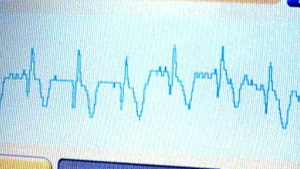A new study says younger women need to be more aware of the signs of a heart attack… and so do their doctors.
By Dr. Dave Hnida
The report in the Journal Circulation shows that women between the ages of 18-55 are more likely to die because they ignore or misinterpret symptoms of heart disease, even when they seek medical care, as their physicians dismiss the heart as a possible cause more than two-thirds of the time.
The result is delayed diagnosis and often fatal consequences.

We’ve known for some time that symptoms of heart disease often differ between men and women. But this report stamps an emphasis on that awareness as it looked at more than 3,000 people who suffered a heart attack and then analyzed their symptoms and diagnosis.
Both men and women are prone to suffer true chest pain with a heart attack, but the study finds younger women are more likely to have a hodge-podge of symptoms as well. They are symptoms that are easy to ignore as originating from a heart that’s in trouble.
The list of those symptoms is a long one, and includes:
Chest discomfort
Chest pressure
Chest tightness
Shortness of breath
Extreme fatigue
Nausea
Heartburn
Neck pain
Jaw pain
Shoulder/arm pain
Pain between the shoulder blades.
In this study, women who had a delayed diagnosis were more likely to have at least three of these symptoms. And those symptoms, once again, were more likely to be dismissed by the woman and her doctor as being caused by some other issue such as a muscle pull or indigestion.
One final note: heart attacks are not always the lightning strike to the chest phenomenon. It’s not unusual for the symptoms to evolve over the course of several days– so it can take time.
That means it’s important for you to get symptoms checked out, and for us doctors to play it safe, and investigate them as a possible heart issue.
Dr. Dave Hnida is CBS4’s Medical Editor. He blogs about the latest studies and trends in the health world. Read his latest blog entries, check out his bio or follow him on Twitter @drdavehnida


